Stephanie M.
I'm a content writer and novelist who loves books, writing, theater, and my cat. I have published two novels and traveled to London and Paris.
Columnist III
- Plebian Penman
- Common Writer
- Aristocratic Author
- Noble Scribe
- Lurker
- Pssst
- Hand Raiser
- Vocal
- Outspoken
- Extrovert
- Center of Attention
- Forms a Crowd
- Sharp-Eyed Citizen
- Town Watch
- Detective Deskman
- Penman Patrol
- Forensic Fiend
- Motivational Columnist
- Motherboard
- Composition
- Literary Art
- Referencer
- Actor
- Successful Pilot
- Animator
- Animaniac
- Well Read
- Chaptered Mind
- Art Collector
- Article of the Month
- ?
- Articles
38 - Featured
34 - Comments
686
- Ext. Comments
331 - Processed
184 - Revisions
181
- Topics
78 - Topics Taken
5 - Notes
243
- Topics Proc.
76 - Topics Rev.
16
- Points
12680 - Rank
4 - Score
8703
Latest Articles
Latest Topics
Locked | Can Creators Redeem the Horror Genre's Inherent Ableism?Whether or not it's "spooky season," the horror genre has hordes of devotees, and well it should. Horror gives us a safe outlet for facing our fears, exploring our inner demons, and pitting our inner heroes against some of the most frightening scenarios ever conceived in creators' minds. Whether in books, in film, on the stage, or in some other medium, horror has earned its place as a revered genre. However, the 21st century has exposed a particular underbelly of horror: ableism. Many if not most horror villains either have some sort of disfigurement or disability, or can be read or "coded" as such. Frankenstein's monster is a reanimated, grotesque corpse who speaks and acts like a caricature of an intellectually disabled man. The impetus for Dracula and vampires came from sufferers of porphyria, a fairly rare disease still poorly understood. Several seasons of American Horror Story, notably Asylum and Freak Show, paint disabled characters as frightening or grotesque if not outright villainous; at best, these characters are pitiable. The recent TV series Changeling centers on a demonic being whose changeling status has been compared to autism for centuries. Stephen King's disabled horror characters aren't villains, but are stereotypes, and pop up in almost all his novels. These examples might tempt us to "cancel" horror altogether, and certainly, the ableism within warrants serious discussion. But is there a way to stay true to the horror genre in coming years without sacrificing its conventions (e.g., updating classics to the point of unrecognizability)? Can a form of "new horror" decry ableism while bringing true dignity to coded disabled characters, or characters who are shunned or feared? Discuss.
|
The Questions of "Demonic" AnimationAnimated series such as Hazbin Hotel and Disney's Little Demon have gained popularity over the last year. Some fans are attracted to elements like the musical structure of Hazbin, while others are drawn to sharply drawn and multifaceted characters, as well as irreverent humor and a safe way to explore the darker side of the afterlife. Yet, just as many other media consumers find this "demonic" animation offensive. For some, it goes against the tenets of their personal faith, particular Abrahamic religions, to consume these shows. Others find the demonic characters and landscape inappropriate for the kids at which some animation is aimed, or inappropriate for a mixed audience. Still others question why this material is so easily greenlit and produced while other material, such as films like Sound of Freedom, faced backlash and "cancelling" attempts due to graphic, yet realistic content at least somewhat based on true events. Analyze and discuss this "demonic" animation. Beyond its target and niche audiences, does it have any merit and if yes, for whom or in what way? Should there be a "heavenly" counterpart, and if yes, what would that look like (if not, why wouldn't it work)? If demonic animation should be "replaced" because it's inappropriate in any way, are there shows or other forms of media that would attract audiences the same way? |
The Enduring Power of MarioIt seems like Mario and Luigi have been around since time immemorial. What began as an eight-bit video game with the goal of rescuing a princess from a dragon in the '80s and '90s, has become a veritable empire of games. From the 3-D Nintendo 64 edition of the original, which expanded Mario's worlds and took the U.S. by storm circa 1996, to the nostalgic yet evergreen Mario Kart, to the newest addition Princess Peach Showtime, Mario has reached a broader audience than perhaps any other game franchise. Discuss the popularity of the Mario-verse and why its creators have been so successful in marketing not only the original games, but also games in completely different genres (racing, fashion and dress-up, and so on). You might choose to discuss characters and how their universes and personalities have expanded over time. Finally, you could speculate on where the Mario-verse might go next, and what worlds and ideas Gen Z and Alpha might find most appealing. |
Writing Love Triangles WellLove triangles are often associated with romantic fiction, but are also common in other genres like young adult, fantasy, or speculative fiction. A love triangle usually involves a female protagonist being pulled between two male love interests, but can be gender-inverted or use LGBTQ examples. This trope is popular among many readers, but just as many claim to hate love triangles. Detractors say the trope is overused, with players often too attractive or otherwise perfect to be believed, and surrounding situations that are contrived if not outright cliche. Using some of your favorite–and perhaps least favorite–examples of love triangles, discuss what sets some apart from others. What does it take to write a love triangle well? What are some common mistakes authors make when writing this trope? Why and how can a badly written love triangle still have legions of fans? Has the trope evolved in any significant way, and if so, what new versions and expectations should authors be aware of?
|
Screen Queens: The Influence of Golden Age ActressesAudrey Hepburn, Julie Andrews, Vivien Leigh, Marilyn Monroe, and several other actresses are legends in Hollywood history. Although most are now deceased, these women have made indelible marks on their genres and the film industry as a whole. Most of these "screen queens" are in fact so iconic, one mention of certain films they starred in brings that actress to mind. Some have played roles so well, their names are inextricably linked with their characters, to the point that some viewers believe no one else could ever fill that actress' shoes. Compare and contrast 2-3 of these "screen queens," or others you might think of. What did they bring to iconic roles that arguably, no one else could? What did their presence do for Hollywood history, and what changes did they precipitate? Can any of today's actresses hope to live up to these women, and are there in fact "modern" versions of them today? If yes, do the modern actresses do their forerunners justice? |
Twelve Days of Christmas: An AnalysisThe Twelve Days of Christmas is one of the best known, and arguably more exhausting and annoying, Christmas songs in existence. It's so complex and has been around for so long, one might expect it to have vanished from the carol canon decades ago. However, the carol lives on, as do the stories and legends behind it, and the projects it has inspired. Origin stories float around social media every year. Perhaps the most popular claims that the carol was a way for Catholics in King James I's era to express their faith without fear of persecution (the partridge is Jesus Christ, the three French hens are faith, hope, and charity, and so on). Another origin story claims every gift in the carol is a different bird, not just the gifts directly associated with birds (e.g., "five golden rings" refers to ring-necked pheasants). Along with this, touching or funny riffs on the carol are found in almost every fandom and subculture (Harry Potter, Redneck 12 Days, 12 Days based around political satire, and more). Hallmark's expansive list of holiday movies includes no less than two based on the conceit of giving 12 meaningful gifts. Even some of today's more orthodox church denominations (Catholic, Eastern Orthodox, and others), still treat Christmas as a 12-day affair, ending on the Day of Epiphany. Examine how and why the 12 Days of Christmas, song and concept, are so ingrained in our culture even if not everyone celebrates the holiday as such. Pick a few origin stories or 12 Days-inspired projects to analyze. What does this carol and concept mean for us? What is it about the concept that has staying power, even if some people dislike the song? Are some inspired projects better at capturing the spirit of 12 Days than others? What might a literal or figurative "12 Days" look like for secularized culture, and would it make the holidays better or worse? Both? Discuss.
|
The Cultural Impact of Elf on the ShelfIn 2005, Carol Abersold and her daughter Chanda Bell dreamed up a new Christmas tradition. Parents could purchase one of Santa's elves, a cute little creature sent to "scout" for Santa and report whether the kids in a certain home had been good. The elf would stay with their chosen family from December 1-25, getting up to creative antics while the kids were asleep every night. The combination elf doll and book were an instant smash hit with their target demographic. In almost 20 years since inception, the original white, blue-eyed male elf has received female counterparts, as well as Black and Latino/a counterparts, male and female. Parents of disabled children have bought or handmade accessories like wheelchairs or braces for their dolls. The Elf on the Shelf has its own theme song and has spawned a made-for-TV movie, as well as a 2023 elf-themed baking competition on Food Network. However, not everyone wants this elf on their shelf. Every year, parents flock to social media to panic–"It's almost December 1 and I can't find the elf/I need an elf!" They commiserate with fellow parents and guardians–"I hate this [darn] elf!" Parents, teachers, and child development experts have excoriated the elf as a "Christmas spy," a tool that encourages extreme behaviorist thinking and doesn't contribute to concepts of grace, making mistakes and learning from them, or doing well without doing perfectly. In a season where kids are already excited, anxious, and overstimulated, the elf feels like an enemy. Plus, many parents find it "just plain creepy." Discuss the pros, cons, and cultural impact of the Elf on the Shelf, as well as any alternatives you know (e.g., Kindness Elves, elves who use their time to make the journey to Bethlehem, elves who celebrate Hanukkah or Diwali). Why do you think culture embraced or rejected the Elf on the Shelf? In what capacity if any was it needed? Do alternatives "work," or do we need better alternatives, if any? Will the phenomenon ever leave us? Choose a couple of these or other questions upon which to expound. |
Published | Why Writers Love WhumpWithin the fiction writing community and especially on social media outlets like Tumblr, there is a particular type of writing that draws a subset of writers. This writing type is called "whump." Broadly defined, "whump" happens when one character gets hurt, physically, emotionally, or otherwise, and must receive care from another character, or conversely, endure the trauma alone. Whump can take many forms and be as innocent or graphic as the writer wants, although most writers will post trigger or content warnings if they intend to go into certain details. Graphic or not though, many writers confine their enjoyment to whump communities for fear of being misjudged as sadists, masochists, or otherwise unstable. Others write whump to the exclusion of other types or scenes, which may raise questions about their growth in the craft of writing. Examine the many reasons why fiction writers love whump. Are they all looking for catharsis for their own trauma? Are some of them caretakers who enjoy seeing characters rescued and nursed to health? Why do you think these writers get judged for liking and creating whump content, whereas a whump reader is less likely to be judged for reading a violent or horror novel? Are there some forms of whump that take the concept too far? And perhaps most importantly, what does this type of writing offer to the fiction community, that no other writing does?
|
Latest Comments
| Can Art-ficial Be Art?: The Human Heart Behind the Machine | |
Lovely work! I had never heard of Gwen Harwood before, but her sonnets are clever, beautiful, and piercing. They remind me of a course I once took called Women in Literature/Women in Religion (it was called a “linked” course, double the length of a standard one. Everyone at my college had to take one, so several departments would offer them in any given semester). Harwood would’ve fit right in. | The Quietly Subversive Poems of Gwen Harwood |
Yeah, I think I remember hearing about the conflict between Walden and Disney over the themes. And yes, I remember my church and several others encouraging families to go see it. My family and I went with some friends of ours the weekend after the premiere. We froze our buns off, but it was so much fun. I was in college, and I still cried over Aslan. | The Rise and Fall of the Narnia Film Series |
Exactly! I loved LWW. Now of course, I was a first-semester college sophomore then, BUT I was also taking a whole class on C.S. Lewis (religion major). We didn’t read all the Narnia books, but we read LWW together. So, I was really into it. But then Prince Caspian came out, I rented it, and I was like, “What in heck is this? I am so bored!” I tried it again later, thinking I just didn’t “get it” before, but, no. It was just battle scene after battle scene, no dialogue, flat characters. Dawn Treader was better, but not much. | The Rise and Fall of the Narnia Film Series |
Hmmm. Or until somebody invents a DeLorean that takes us to, what would it be by now, 20-50-something? Paging Doc Brown… | The Rise and Fall of the Narnia Film Series |
Yeah, he’s probably rolling in his grave over the whole thing. Then again, if you go by the definition of allegory…sorry Jack, but you kind of went that route whether you meant to or not. | The Rise and Fall of the Narnia Film Series |
I tend to agree. LWW is great. Prince Caspian, I hate to say, I found deadly boring. Dawn Treader…eh… And while I also hate to think of losing Magician’s Nephew or The Horse and His Boy, I see your point. They fit as far as the books, but if you’re going to adapt them into a film or TV series, it’s hard to tell where and how they would mesh with the rest of the stories. | The Rise and Fall of the Narnia Film Series |
It really is an underrated jewel! I didn’t get to it until seventh grade (part of a fantasy unit; my teacher split the class into three different groups and we rotated books). I liked it so much, I read ahead, which was apparently this huge crime in her class, but I did not even care. I still think about those green and yellow rings, Jadis causing chaos in London, and of course, the Wood. | The Rise and Fall of the Narnia Film Series |

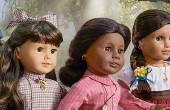
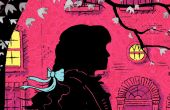

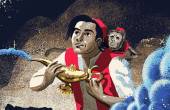

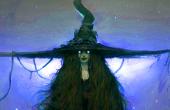
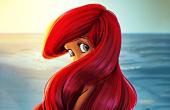
Thank you for exploring this topic. My manifestation of cerebral palsy affects my hands in such a way that I cannot draw. Most people refuse to believe this because I can feed myself, brush my teeth, and dress myself, and my clothes are not backward. There is not food or toothpaste smeared all over me. But the truth is, unless I tell you what something is supposed to be, you are *not* going to recognize it. My handwriting is the same; it’s an odd mishmash of uppercase and lowercase letters that don’t proceed in a straight line, ever (so I type).
Most people are supportive when I talk about how I want to use AI to create art/illustrate the characters I’ve created and longed to “see” for years. But I do have those few who turn it into a discussion of, “Yeah, but AI is gonna take over the world/AI is evil.” I usually roll with it. After all, I remind them, this is what people initially said about the Internet, and most of us use that without evil intent. I would be lying though, if I said the moral and ethical implications didn’t bother me. Moreover, I still find AI’s limitations frustrating at times (like, I’ll input a character’s info and get something back. I’ll think, “No, they look like a model!” Or, “No, they look like AI!” Which, yeah, they *are* AI, but… Ah, well. I guess all any of us can do is keep working on it. Thanks again!